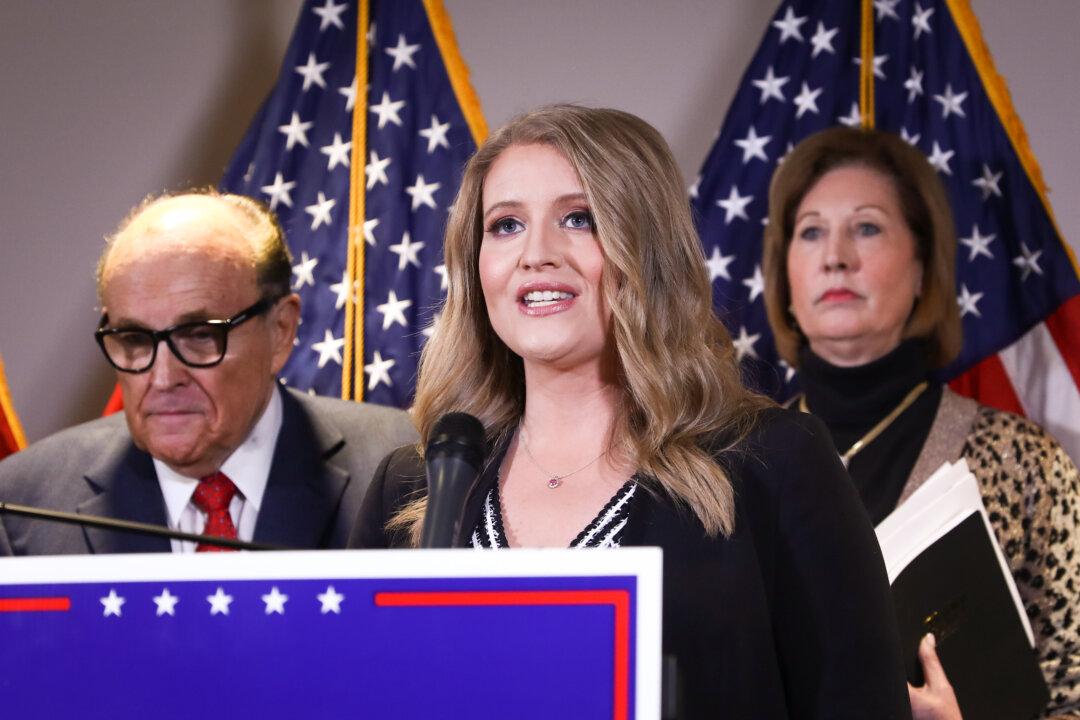Trump campaign legal adviser Jenna Ellis on Monday suggested that Vice President Mike Pence could delay the certification of the Electoral College votes and ask the legislatures in six states where the results of the election have been contested which slate of electors should be selected.
Georgia, Pennsylvania, Michigan, Wisconsin, Arizona, and Nevada, are six key battle ground states where President Donald Trump’s campaign and other Republicans have contested the results of the presidential election, alleging that election fraud and irregularities took place on a large scale that swung the results to Biden.




